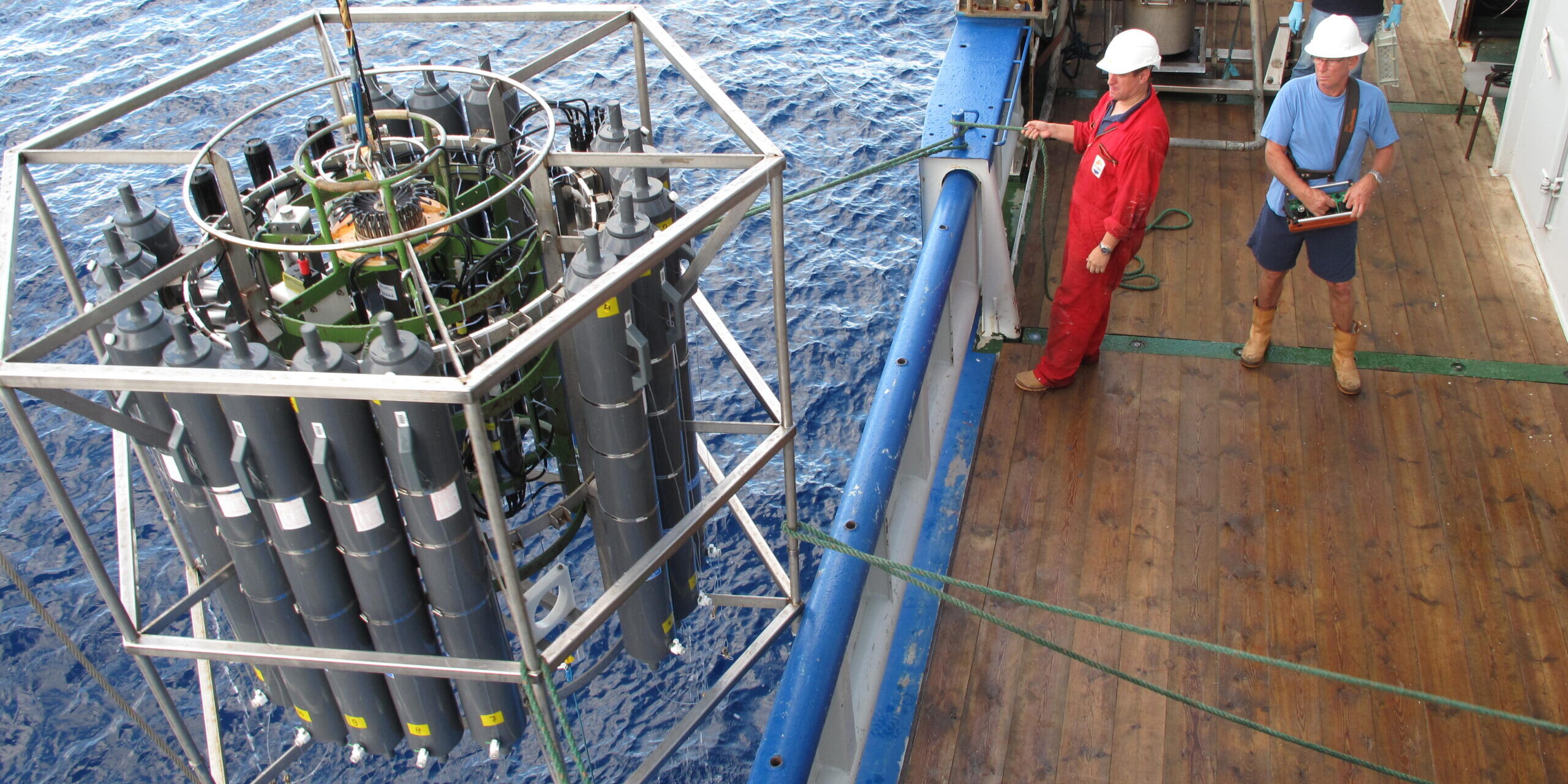Gerhard Herndl at the Department of Functional and Evolutionary Ecologyis leading the “DEPOCA” project.
Description: There is a major mismatch between the organic matter supply and the organic matter demand of the heterotrophic organisms inhabiting the deep-sea. The consumption of organic matter is much higher than the organic matter flux in to the deep-ocean and this mismatch increasing with increasing depth reaching one order of magnitude at 1000 m depth. Resolving this discrepancy between organic matter supply and consumption is the goal of DEPOCA. We have evidence, based on earlier work, that there is a major stock of organic particles in the deep-sea which is not sinking through the oceanic water column but is neutrally buoyant and hence, transported horizontally through the water column. While the source of these buoyant particles is unknown, we do have evidence that these particles are heavily colonized by bacteria and fungi utilizing this material.
The project DEPOCA aims at deciphering the source and fate of these particles in the deep waters of the North Atlantic. During a research expedition, sinking and neutrally buoyant particles will be collected and the age and source of these particles determined. Also, the microbial community composition and the activity of the microbes will be assessed. Gerhard Herndl and his team expect that these neutrally buoyant particles, which escape routine measurements will resolve the enigma of the “missing organic matter” in the deep ocean.
Collaborator: Marilena Heitger (University of Vienna)
Duration: 3 years (2022 – 2025)
